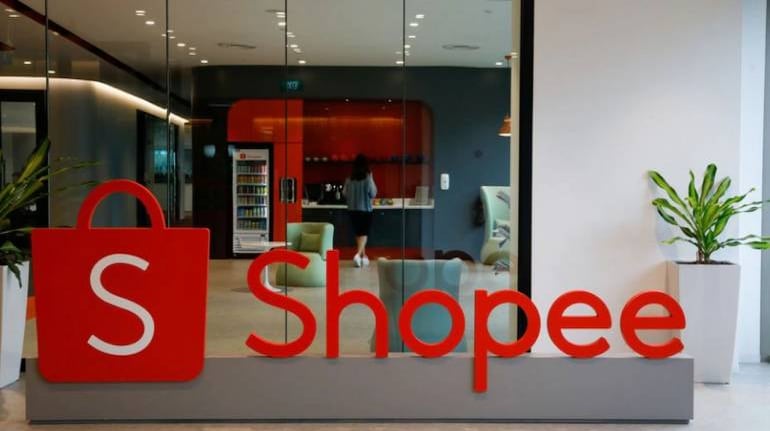



Even as Garena Free Fire, a company owned by Singapore-headquartered SEA Group, made it to the list of banned apps in India, all eyes are now on e-commerce firm Shopee, owned by the same group, which entered the country just last year.
The local traders’ body is fuming over the government's "miss" at a time when the Tencent-backed firm has made more headlines for protests against it rather than its business metrics.
The company, which entered India last year in a quiet manner, has now been reporting over 3.5-4 lakh orders on a daily basis, according to sources privy to the development. However, it has continued to be on the radar of offline traders from day one for heavy discounting and its alleged Chinese links.
Moneycontrol was the first to report about Shopee’s business expansion in India and how it was doubling down on its business with a focus on order volumes. Without caring much about the average order value, it started off by running four flash sales on a daily basis – at 12am, 12pm, 4pm and 8pm – with offers ranging from Rs 9 to Rs 49 to Rs 99 to Rs 199. It even has products priced as low as Re 1 and offers zero commission for sellers and free shipping for customers, enough to disrupt an already highly competitive market.
However, the strategy doesn't seem to be working in the company's favour as allegations of counterfeit products sold on the website have started to emerge. Last month the Uttar Pradesh police filed a first information report (FIR) against four of the company’s executives including India head Ankit Upadhyay and the firm under Section 419 and 420.
The FIR was issued following a complaint by a resident Shashank Shekhar Singh who alleged that three products including two sunglasses and a bottle of perfume that he bought from Shopee turned out to be fake. While one of the sunglasses was advertised under the luxury brand name Gucci, the other one was of Prada.
“The government seems to have taken a view to ban based on information available with it on various apps. It has added Garena Free Fire Illuminate to the list which is part of SEA Ltd, the holding company for Shopee, Sea Money, Garena, etc. Free Fire Max, also from Garena, continues to be available on Google Play Store, while Apple App Store removed both the versions of the game. It is for the government to now clarify whether it intends to also ban other games and also related businesses of Garena using this logic," Rameesh Kailasam, chief executive officer of IndiaTech.org, an industry body that represents founders of Indian startups and investors told Moneycontrol.
Even as the government has not immediately shown a red flag to the company, this development casts a shadow on the expansion plans of Shopee in a market dominated by the likes of Amazon and Flipkart.
"This may have an impact on expansion plans for businesses aligned to those in the banned list if the government quickly turns around and acts on them as well," said Kailasham.
While the company maintains it is headquartered in Singapore, as per its year-old press statement Shopee’s live broadcasts are carried out on Tencent Cloud which is headquartered in Shenzhen Shi in China. It wasn’t immediately clear if Shopee was storing even the Indian customers’ data on Tencent Cloud in China.
Shopee did not comment for this story.
“Ultimately, our concern is that through these apps consumer data is being consolidated in China. We will have to take a comprehensive view, otherwise in the long run we will be handing over promising businesses in the hands of foreigners,” Praveen Khandelwal, secretary general told Moneycontrol.
“India is short of policies and regulations especially for some very promising business streams like e-commerce, online gaming and other technology-led verticals. Now it’s time for framing necessary policy, laws and rules coupled with regulatory authority,” he added.
SEA Group was founded by Forrest Li Xiaodong, a Chinese-origin Singapore national in May 2009.
“It is interesting that they banned Garena and not Shopee. This has happened despite public knowledge about Shopee’s dependency on Chinese firm Tencent. Something doesn’t seem to add up,” said an industry expert requesting anonymity.
"Shopee's business model is under heavy scrutiny. Just look at how they are selling products at throwaway prices. They seem to be something feeding off something,” he added.
However, even as all of this happens, the questions that the government needs to answer is that at a time when it had put the neighbouring country clause at play, how did Shopee whose dependency on Chinese firm Tencent is fairly high pass through the filter in the country.
In 2020, the government had amended the foreign direct investment (FDI) policy to discourage opportunistic investment in Indian companies by neighbouring countries in the midst of the pandemic.

Discover the latest Business News, Sensex, and Nifty updates. Obtain Personal Finance insights, tax queries, and expert opinions on Moneycontrol or download the Moneycontrol App to stay updated!
Find the best of Al News in one place, specially curated for you every weekend.
Stay on top of the latest tech trends and biggest startup news.